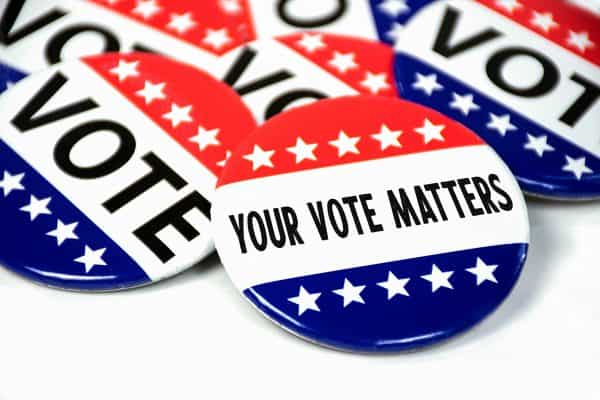Identifying Reliable Sources of Data, Tools to Drum Up Popular Support
Digital advertising has elevated political campaigning to a much higher level making it a dependable platform for candidates and their handlers. Using a mix of cutting-edge technology and innovative techniques, a well-thought of online strategy can effectively reach out to the American electorate more than conventional methods. However, campaign strategists need to find well-founded sources of data as well as functional tools that can support their PR and publicity blitz at full steam.
Finding & Using Data
Political campaigns worldwide have become data driven. Election campaigners realize the importance of data for digital advertising initiatives. In fact, they know that data can spell the difference in electoral success and that there are multiple ways wherein data is utilized. According to Privacy International, a registered charity based in the United Kingdom which promotes and protects privacy rights globally, “political campaigns around the world have turned into sophisticated data operations.”
To put it differently, political tacticians depend on data to simplify decisions on matters like which communities or States to concentrate resources; areas to hold rallies or caucuses; and ways of targeting supporters, opponents and undecided voters. The truth is it is not difficult to access information of registered voters (names, addresses and records of those who voted in specific polls). All these are public knowledge. However, the problem lies in the process of looking for the appropriate source, obtaining and organizing data, and using them perhaps for political campaign advertising.
Data, Analytics & Sources
During the 2008 and 2012 United States presidential campaigns, both Democrats and Republicans made it a point to get hold of vital data resources in the midst of their aggressive efforts to get the backing of the electorate. Candidates from the two parties were provided with a complete and properly organized data of national voters for campaign purposes. In fact, then candidates Barack Obama, Hillary Clinton and Donald Trump hired experts in analytics for detailed data analysis as part of their campaign staff.
As the election season culminates, candidates who have gained an edge can look back at how they were able to capitalize on their political campaign advertising schemes as well as maximize data gained from sources which include social media networking sites (Facebook is the most popular along with Instagram, Twitter and What’s App), poll surveys, Internet browsing, and magazine subscriptions. Those who were not able to gather information from public records purchase data from data or information brokers. They are also known as information resellers and consumer data analytics firms. These are companies that aggregate huge databases of private or personal information and sell them for a hefty price. A new generation of data brokers have been concentrating solely on political campaigns.
Valuable Political Campaign Tools
While political data just like digital advertising have been useful in political activities, partisan parties’ campaigns in the country have evolved amid technological advancements. Some of the sophisticated tools and software proven effective for politicians are the following:
- E-Canvasser, an app that makes management of field activities easier by using intelligent maps to locate voters and conduct tracking of canvassers in real time. It maximizes the returns obtained from field operations by equipping personnel with the means of collecting and analyzing pertinent polling data. Among its best features are collection of survey responses and creation of walk lists based on geographic or topographical coordinates (addresses).
- NationBuilder merges the capabilities of a Content Management System (CMS) and Customer Relationship Management (CRM) software into one suite. NationBuilder is fitted with a variety of digital tools that enhance political campaigns with web design, social media, organization of volunteers, and fundraising. It can process donations, create interactive and responsive websites, and send email messages as well as track metrics like click-throughs, bouncing messages and spam reports. This app can collaborate with other tools and is capable of integrating with over 50 campaigning apps.
- CallHub refers to calling tools for ‘political phone banking’ and powers manual dialing and high-volume dialing campaigns with the use of automated dialers. This tool is able to integrate with NationBuilder and other apps enabling organizers to sync lists of voters, events and surveys in real time. Agents can get into individual contact information, complete interaction history, phone banking scripts, and survey results.
- YouTube is YouTube and needs no further introduction although it can be a powerful political tool due to viewership. But candidates have to be in front of camera (video format) to get their message across to constituents and respond to criticisms, controversies or queries that arise during the campaign trail. YouTube videos are shared through emails and social media.
- Slack is an app that is effective for teams that want to communicate regularly. The app has a laptop interface for sharing messages, images, and documents. At the same time, its mobile app establishes connection to field workers so they will always be on the loop and update campaign headquarters for any developments. Slack is completely free until users reach a certain maximum limit of sent messages.
- Facebook is crucial to political campaigns. Facebook is the candidate’s face to the rest of the world. As a matter of fact, politicians easily and quickly interact with voters because FB is so popular and widely used by 71% of Americans. FB Live is often used as Live Streaming service for open meetings, conversations or simply to propel engagement with voters on important issues.
Building an Advantage
As the election campaign comes to its final stages, the protagonists still have the chance to build an advantage over each other by engaging in political campaign advertising and other innovative tactics. The key for candidates is to employ experts who can help them gain the upper hand in the crucial stages of their electioneering activities. It won’t be easy getting to the finish line but it’s always crucial to get their message across to the American people.
References:
https://privacyinternational.org/learn/data-and-elections
https://www.pewresearch.org/methods/2018/02/15/political-data-in-voter-files/
https://callhub.io/political-campaign-tools/
https://www.ecanvasser.com/campaignblueprint/political-campaign-tools-2018/


